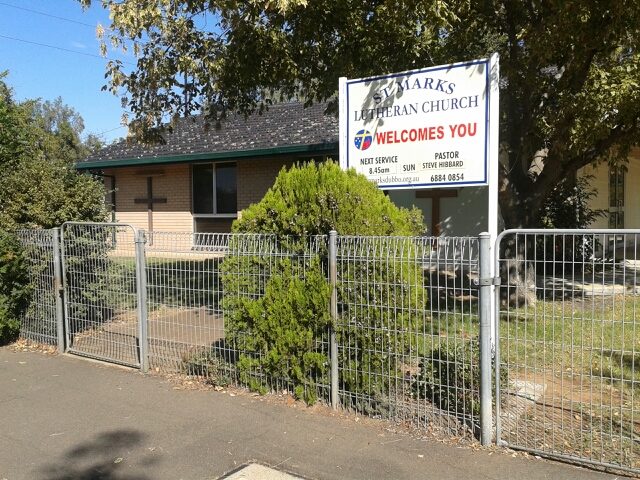Galatians 5:1
To freedom Christ has set us free; therefore stand firm and don’t attach yourself again to a yoke of slavery.
Sometimes we choose to start doing something that we can’t stop until it’s finished. Maybe it’s something useful and good like cleaning and defrosting your fridge, or changing the oil in your car. Or perhaps it’s something less helpful like going down a hill on a go-cart with no brakes, or like me, not letting food go to waste and so keeping eating until all the too much food on my plate is gone and I feel a bit sick. It’s like there’s no escape from the task you’ve chosen, there’s no freedom, like you are a slave to it. This can be the same with sin, once you start lying you’re stuck, trapped and enslaved.

But it’s not just an individual act, like being trapped by your own lie, it can also be a lifestyle; getting stuck in a routine or a rut, nothing changing and not being able to see past your own troubles, the tasks at hand, forgetting God and others. To be a slave to your job, to money, to your reputation, your clean house, to different political ideals, to your own passions and desires. To serve these things, looking to them for help, praising and focussing them is to worship them alongside God or even instead of Him. To fail in fearing, loving and trusting God more than anything else with everything that you are. This is not the life of a Christian, the life of those saved by Jesus, you have died to sin together with Him and are with Jesus given renewed life in the Holy Spirit, through baptism and Holy Communion. Because of Jesus you are Free!
But don’t use your freedom to indulge yourself, as Paul puts it, for opportunity to the flesh, your sinful self. Rather through the love of God serve each other, look around, these people you see here, all of us, need help, need encouragement, and certainly need prayer even if you don’t like to admit it; but you are free from your earthly reputations too, if you need help, ask; if you have failed, confess; and you’re free to serve, free to forgive, because Jesus has freed you for this by dying on the cross and joining you to His body, the church of Christ, saints throughout all time. Walk, like so many have before you and so many are now beside you, walk in the light of the Holy Spirit, the wonderful helper you all have received, don’t gratify the desires of your flesh. And even when you want to don’t fulfil your selfish desires, don’t be enslaved by them again, you are with the Spirit.
The Spirit, not the flesh. Paul writes that our sinful desires, the works of the flesh, are obvious and lewdness, drunkenness and orgies certainly are; but I find that so often we can forget, getting caught up in our lives what we see and hear and just forget Jesus and who we are in Him. Did you remember that quarrelling, fighting, is sin? What about mercenary ambition? Division, factions, grudges? Do these come from the Holy Spirit of God, does He guide us to hold a grudge, to refuse to be reconciled? Or do these come from you? Are our enemies the people in power who seem increasingly against the Christian faith, or do we fight against that small tempting voice that wants us to forget God’s word, His promises, and hide our failures? Jesus tells us that it’s what comes out of us that makes us unclean, evil (Mark 7:19); and Paul writes as well, that we struggle against our own body, our hostile desires, sexual, selfish, and lazy ones too (Romans 7:15-25). These desires of the flesh to go our own way and not God’s, to reject His Spirit and enslave ourselves again to sin, this is not what you were baptised for, this is not why Jesus died for you. He died and rose that you might be free from this. And you are, again you are forgiven in Him, if you still struggle with this hear His words at the table, shed for you for the forgiveness of your sins. You are free from sin, death and the devil, free for life in the Spirit.
And what does this new life look like? How does Jesus’ forgiveness and love change us, renew us? The fruits of the Spirit are love, joy, peace, these three come up so often; we love because He first loved us even when we were His enemies (1 John 4:19; Romans 5:8-10); we rejoice because of the freedom He has given us, and for all the good things He continues to give (Philippians 4:4); we have deep peace because we know that ultimately everything that needs to be done has been done by Jesus, He gives life and makes you holy, there is nothing to fear with Him, not even death (John 19:30; Hebrews 2:15; 1 John 4:18). But Paul goes on, the Spirit produces patience, usefulness or kindness, goodness, faithfulness or trust, meekness or gentle strength, and self-control. Against things like these there is no law, you are free to live with these in every aspect and for all your life. And you who belong to Jesus Christ have crucified the flesh and its passions and desires. Drowned the old sinful Adam in baptism, risen with Jesus the New man your life and righteousness, free and living in the Holy Spirit. Every time we confess the truth of our failings He is righteous and just to forgive us, to return us to our baptism drowning, killing again, our sin and restoring us in His righteousness. A clean slate, with the Spirit. And if we live in the Spirit, together with all Christians those fighting here, the saints in warfare, and those who have gone before us, the saints at rest, if we live in the Spirit, by the Spirit we should march.
So go guarded in Christ Jesus by that peace of God that passes all understanding, march and serve the Lord. Amen.
Joseph Graham


